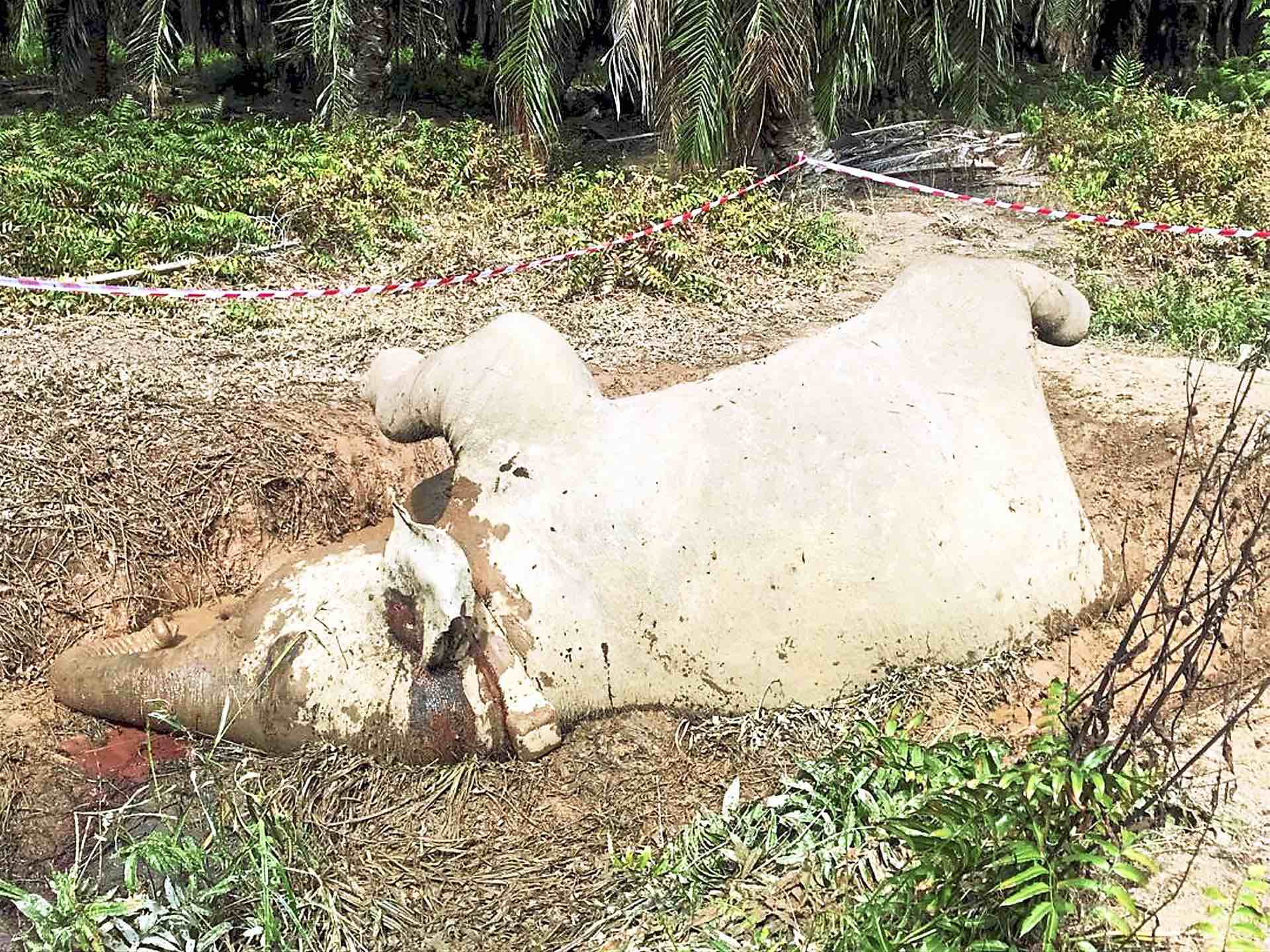Sabah Wildlife authorities disclosed early this morning that preliminary investigations into the death of a female pygmy elephant found near Kinabatangan indicate that she was poisoned.
Investigators also found that the animal had been tagged by researchers, and that her ID read “Girang.” They believe that she had been poisoned for some time before her body was found Nov. 14, and that she subsequently died of organ failure. There were no signs of external trauma on her body.
Over the weekend, a plantation worker found the body of the elephant in a ditch along a road that at the Melangking Oil Palm Plantations (MOPP), and alerted a manager on site. Both went to investigate the discovery, and reported that the animal had already started decomposing, emitting a foul odor, with smaller animals eating its rotting flesh.
“The department went to the scene with the police and several researchers from the Danau Girang Field Center (DGFC) and non-governmental organization Hutan,” read a statement from Sabah Wildlife.
Post-mortem results showed that at the time of its death, the elephant had severe heart congestion, severe lung congestion, an enlarged liver, and severe congestion of that organ as well. The contents of her stomach, which included palm fronds and sweet potato, suggest that she probably lived near the oil palm plantation.
More thorough chemical analyses are still underway, and investigators are compiling witness statements to determine the source of the animal’s poisoning.
Sabah Tourism, Culture and Environment Minister Christina Liew has said she believes the animal either ate tainted fertilizers or chemicals on plants, or was deliberately poisoned. She has said that she will call an immediate meeting of experts and advisors to stop such incidents. This is now the fourth prematurely dead elephant found in two months.
Liew added that she wanted to “declare war” against those who pose a threat to elephants.
Wildlife experts will be able to use the elephant’s tracker to see its movements before its untimely death, and have said they do not suspect deliberate poisoning in this particular case.
MOPP is a very elephant-friendly plantation, and if anything, it could be long-term poisoning that killed the elephant, said Dr. Benoit Goossens of the DGFC, who told The Star it was important not to point fingers.
“If it has anything to do with fertilizers, pesticides, or herbicides, we have to do something about it – either stop elephants coming into plantations or stop using these products,” he added.





Reader Interactions